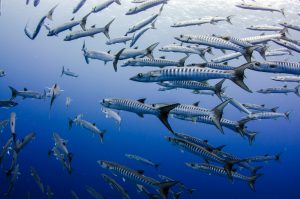The Global Significance of Fishing: Why It Matters to Our Planet and Our Lives


Fishing has been integral to human life for thousands of years, providing sustenance, livelihoods, and a connection to nature. However, in today’s rapidly changing world, its role goes far beyond simply filling plates or supporting economies. Fishing is a keystone industry that affects everything from global food security and economic stability to biodiversity conservation and climate change. But how vital is fishing to the world? The answer is complex, encompassing ecological, financial, and cultural dimensions. This article explores the multiple facets of fishing’s importance and its broader impact on our planet and society.
Feeding the Global Population
At its core, fishing serves as a critical food source for millions of people around the world. According to the Food and Agriculture Organization (FAO), nearly 3.3 billion people globally rely on fish as their primary source of protein. In some parts of the world, especially in coastal regions and island nations, fish accounts for over 50% of the daily animal protein intake.
Not only does fish provide essential nutrients such as Omega-3 fatty acids, vitamins, and minerals, but it also plays a significant role in food security. As the global population grows, the demand for protein-rich foods steadily rises. In many developing nations, where agriculture is limited by land or climate constraints, fish provides an accessible and affordable alternative to other protein sources like meat or dairy.
However, the sustainability of this resource is increasingly threatened by overfishing, environmental degradation, and climate change. If these practices are not properly managed, we risk depleting fish stocks, which would have devastating effects on global food security.
Economic Engine for Coastal Communities
Fishing is more than just a food source—it’s also a vital economic driver for millions worldwide. In 2020, the global fishing industry was valued at approximately $400 billion, according to the FAO, providing jobs for over 60 million people. These include fishermen, processors, distributors, exporters, and those involved in ancillary industries like boat building and maintenance.
In many coastal regions, fishing is the backbone of local economies. Countries like China, Indonesia, India, and Norway have thriving fish industries that contribute significantly to their national GDPs. Even in small island nations, fisheries often constitute a large portion of the economy and are essential for trade and local livelihoods.
Recreational fishing is also a significant economic contributor, particularly in tourism-heavy regions. The global recreational fishing industry is worth billions, with anglers traveling to destinations to fish for both sport and leisure. The economic ripple effect includes travel, accommodation, equipment sales, and hospitality services bolstered by the fishing sector.
Biodiversity and Ecosystem Balance
Beyond human needs, fishing plays a key role in balancing marine ecosystems. Fish are integral to the health of oceans, rivers, and lakes, serving as a food source for other aquatic species and as part of the natural food web. In a well-balanced ecosystem, sustainable fishing practices can help maintain this equilibrium, ensuring species populations are kept in check while promoting biodiversity.
However, fishing’s sustainability depends on proper resource management. Destructive fishing methods like bottom trawling and dynamite fishing can severely damage marine habitats, including coral reefs and seabed ecosystems. These practices can lead to the collapse of fish populations and disrupt the broader ecological system.
Fishing and Climate Change
Fishing and climate change are increasingly intertwined, as rising ocean temperatures, ocean acidification, and extreme weather events significantly affect fish populations. As oceans warm, many fish species migrate to cooler waters, leading to shifts in fishing patterns. This can cause problems for fisheries adapted to certain species and may require costly adjustments to fishing methods and locations.
Additionally, climate change is affecting the availability of plankton and other marine organisms crucial to the food chain. This disruption can have cascading effects, impacting fish stocks, ecosystems, and the livelihoods of those dependent on fish.
Overfishing and the Need for Sustainability
The importance of fishing to the world cannot be overstated, but its sustainability is under increasing threat. Overfishing is one of the most significant environmental challenges facing the globe today. The FAO estimates that nearly 34% of global fish stocks are overexploited, with many others being exploited to their full biological capacity. This depletion of fish stocks is due to a combination of factors, including unsustainable fishing practices, illegal fishing, and weak enforcement of regulations.
Overfishing threatens marine biodiversity and jeopardizes the livelihoods of fishermen and communities that depend on healthy fish populations. In some regions, fish stocks have already collapsed, forcing fishermen to travel farther and use more destructive methods to catch what remains. This creates a vicious cycle where declining fish populations lead to economic hardship, encouraging more intensive, unsustainable fishing.
A Global Responsibility
In summary, fishing is more than just an economic activity; it’s a crucial pillar of food security, cultural heritage, biodiversity, and climate resilience. The importance of fishing to the world cannot be overstated, but its sustainability is increasingly at risk. Habitat destruction, and climate change are threatening the future of this vital industry, not only for those who depend on it for their livelihoods but for the entire planet.

